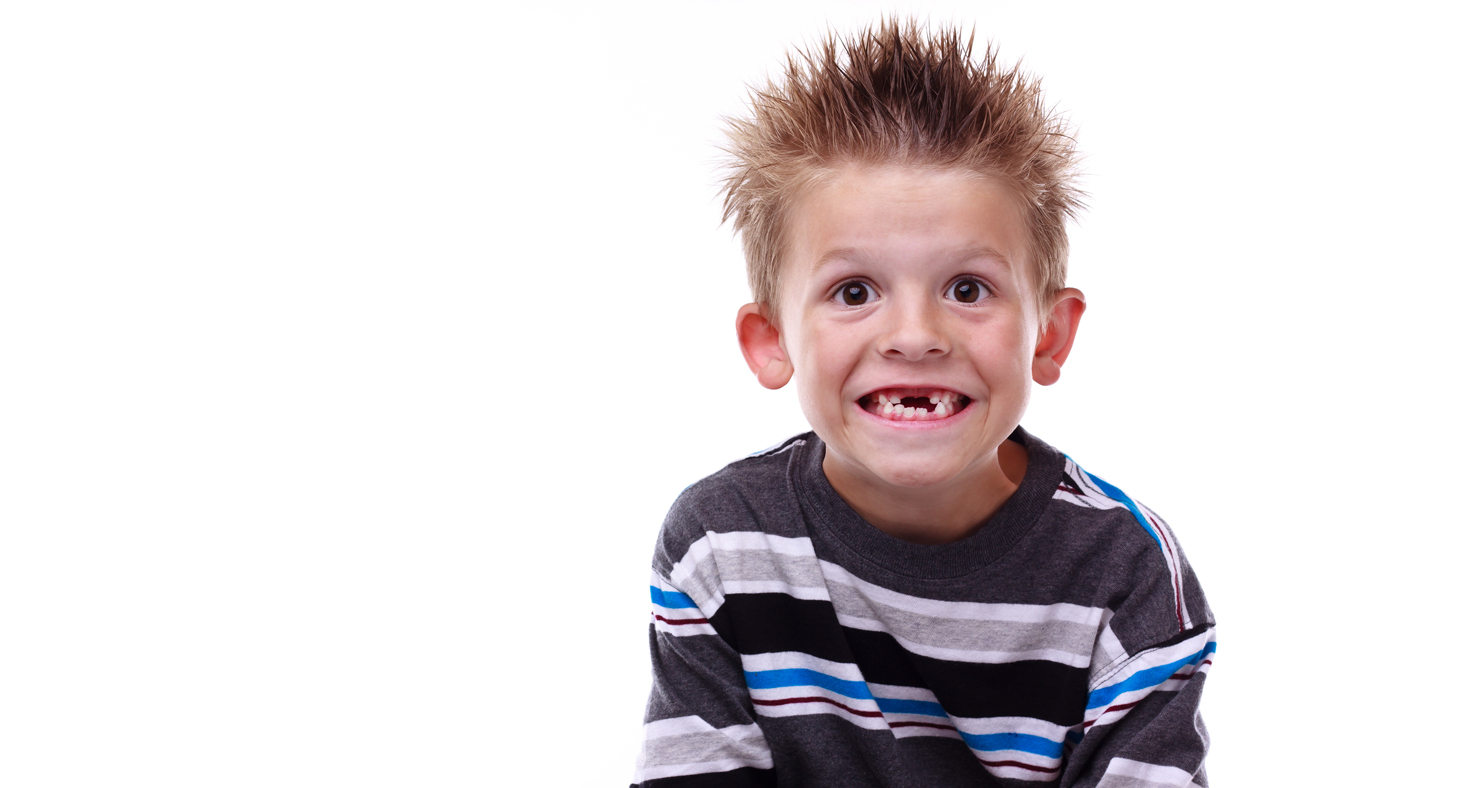Losing baby teeth is a big milestone in your child’s development. Since each child develops differently, it varies when adult teeth start growing.
All about baby teeth
Baby teeth allow a child to chew adult foods and make room for adult teeth to grow. Children will start to lose their first baby teeth anywhere from age four to eight.
If your child is around age four or younger, then consult a dentist to make sure there is not another underlying cause for losing a tooth. At such a young age, children may sustain a tooth-related injury and not necessarily know it. It could also be other issues like gum problems.
Baby teeth become loose essentially because adult teeth are in the process of erupting. As part of that process, the roots of baby teeth will actually start to dissolve, which is what helps them fall out.
Baby teeth will usually fall out in the order in which they grew in. The first teeth to grow in are usually the lower central incisors (bottom front teeth). After that, the upper central incisors are typically the next to come in.
In terms of diet, it will become more difficult for your child to chew hard foods while permanent teeth are growing in. Offer your child bite-sized pieces of hard foods like carrots and apples that prove easier to chew with molars than with the front teeth.
At the ages of nine to twelve, your child will start to lose molars, which may make them complain about food stuck in between teeth. Encourage your child to rinse and brush after every meal. If all their baby teeth have not fallen out by age twelve, then there may be other orthodontic issues the dentist should address.
Should we pull?
Pulling a loose tooth can sometimes cause more harm than good. A loose tooth can make it more challenging to chew food, and your child may start to get frustrated.
That being said, pulling a loose tooth before it is ready to come out can potentially lead to infection, and it can also be painful for your child. Additionally, pulling a tooth too early may produce blood that could scare your child, and possibly make them fear the dentist.
Letting a tooth fall out naturally is the best course of action. In fact, encouraging your child to lightly brush the gums will help loosen the tooth without pain, and often the tooth will fall out during brushing.
Dental hygiene for children
Dental hygiene for your child should start early, from cleaning gums as an infant to lightly brushing early teeth and gums around age 1. Consider these tips for dental hygiene.
Regular dental checkups
This will help acclimate your child to the dental office and the dental exam. The earlier you can expose them to this practice, the less likely they will be afraid of routine dental care.
Brushing
Brushing should start around age 1 or 2 or whenever baby teeth start to erupt. If your child cannot spit out toothpaste at that age, then avoid toothpaste with fluoride. Once they are old enough to not swallow toothpaste, they can switch to fluoride toothpaste. At the toddler age, the toothpaste amount should be about the size of a grain of rice.
Once your child is older than age 2, use a pea-sized amount of toothpaste. Let your child choose the toothbrush they like best, either by color or character, because your child will be more likely to take an interest in their dental care. Additionally, let them choose the toothpaste flavor they enjoy. Your dentist will help guide you both in the best way to brush their teeth, gums, and tongue.
Diet
As you might suspect, diet is closely tied to good dental hygiene. Sugary snacks, sticky treats like gummy candy, and even dried fruits might be tasty, but they can cause cavities if you do not care of your teeth. Avoid sodas and excessive amounts of fruit juice, and make sure your child is following good brushing habits.
Dental Services for Kids in Little Rock
Regular dental services are critical for a child’s well-being. A visit to the dentist can ease the fear of dental procedures and also teach children how to take care of their teeth. Pediatric dentists make the dental experience more fun and relaxing for children and can help ease their anxiety about unfamiliar and potentially scary experiences.
Choosing a dentist
When you are choosing a dentist for your child, consider a facility that treats all members of your family from infant to adult. Ask for recommendations from fellow parents, your pediatrician, and even teachers. The office should be friendly and appealing to children while also providing excellent communication for parents. You can schedule consultations with pediatric dentists before scheduling an exam to get a feel for the office and staff.
For more information
Do not let your child’s dental health fall by the wayside. Contact Arkansas Family Dental at (501)-683-8886 to schedule an appointment. Our dentists understand the unique needs of children and will help guide you and your child to a lifetime of healthy smiles.
